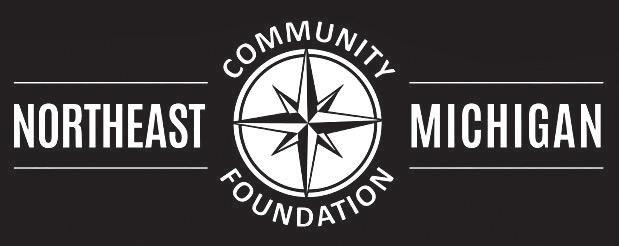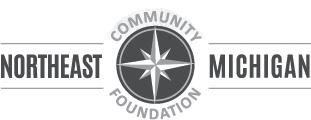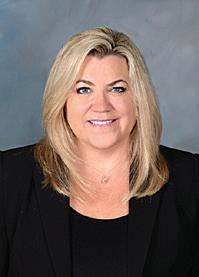MONEY MATTERS



Financial trends come and go, and it appears as though one approach to finance that industry professionals have long touted is having a moment. According to Debt. com, 86 percent of the more than 1,000 respondents who participated in the site’s annual budgeting survey admitted they budget their spending. That marks a roughly 16 percent increase since 2019.
If budgeting is getting a star turn in individual financial planning, it’s well deserved. Budgeting can help people save money and achieve an assortment of financial goals, including paying down debt, financing tuition and planning a dream vacation.
Each person’s budget will be different, but that doesn’t mean people need to take wholly unique approaches to building a budget. In fact, a conventional approach to budget-building can help people from all walks of life.
• Determine your net income. The Bank of America notes that net income, also known as “take-home pay,” is
the foundation of a budget. In the era of direct deposit, it can be easy for anyone to forget how much money they’re taking in each month. Salaried workers can determine their net income pretty quickly and easily, while workers who are paid by the hour and freelancers may need to do a little extra work and serve as their own bookkeepers as they try to calculate their net incomes.
• Monitor your spending. Spending habits fluctuate, but some patterns will likely develop over time, and identifying these patterns is vital to building a budget. Individuals needn’t wait to track their spending. Log into your bank account and see how you spent money each month over the last six months to a year. This can give you an accurate idea of where your money went after it came in. Monthly utility bills may be constants, but those bills tend to fluctuate depending on the season, so a closer examination can yield what the average cost is. Budgets may need to be tweaked during
months when utility bills peak.
• Don’t discount the importance of things you want. It’s important when building a budget that money is left for more than just bills. Things you want to do like dine out, travel or additional expenses like entertainment should be built into your budget so you can still enjoy yourself and your budget is not blown up when opportunities to have fun inevitably arise.
• Track and tweak. Progress can be tracked and the budget can be tweaked if you’re still having trouble saving or your efforts to save are causing issues. Tracking progress allows you to see what is and isn’t working, while tweaking affords room
to compromise if the budget is proving too restrictive or not allowing you to meet your goals.
A conventional approach to budgeting can help people achieve their financial goals and feel better about their futures.
Online banking has become more popular over the last few years as it allows people to do most of their banking over the internet using a computer or mobile device. You are able to complete these tasks when it is most convenient for you, even after business hours!


Many things that you can do inside HPC Credit Union branches, you are able to accomplish online! You are able to pay bills online or set them up as an automatic payment, as long as you have a checking account. You can transfer funds from one account to another while standing in line at the grocery store. If you happen to misplace your debit or credit card, you are able to block it immediately. You can also receive a text or email when your credit union notices potential fraud activity. You are able to view your activity and statements, as well as check your balance regularly from the comfort of your own home. Want to start saving up for something? You can set up automatic transfers towards a special account to deposit weekly, bi-weekly or monthly.
All of this, plus more, can be done anywhere and anytime! Not sure if virtual banking is right for you? Our friendly and knowledgeable staff at HPC Credit Union would be happy to walk you through the process and go over how user friendly our online platform and mobile
app is! As always, if virtual banking just is not for you, we are happy to assist you at any of our four locations, located in Alpena, Mio and West Branch!
HPC Credit Union is here to keep your accounts safe, whether you are banking online, over the phone or in person!
HPC Credit Union’s Mobile App is available in the Apple and Play store or visit our website, www.hpccu.com, to access online banking.

Owning a home is a dream shared by millions of people. Investing in property that can be owned within 15 to 30 years of closing on the home makes more financial sense to many than continuing to rent and having little to show for it over time.
The first step to take when planning to enter the real estate market is to ensure that your finances are in order. Various factors will influence individuals’ ability to secure a mortgage, and these are some ways to make yourself more attractive to prospective lenders.

• Check your credit report. Lenders will check your credit report before deciding if you are a risk or a safe bet for a mortgage. So it makes sense to check your credit report prior to speaking with a lender. The Federal Trade Commission says ev-
eryone can get one free credit report a year from each of the three credit reporting bureaus. If you split it up, you can get a credit report every four months so you are aware of anything that may adversely affect your ability to get a mortgage loan. A credit (FICO) score that’s too low may disqualify you from a mortgage. Each lender sets its own thresholds when they price and approve loans, but the higher your credit score, the better.
• Improve credit standing. One way to improve your status in the eyes of lenders is to pay down credit card balances to reduce your credit utilization ratio. A high utilization occurs when there is a high balance in relation to the credit limit, says Business Insider. Also, it may be wise to avoid any credit inquiries through new credit card applications
Northeast Michigan is in the process of losing billions of dollars. Billions. It has already been happening for over a decade and by the year 2060, nearly $17 billion will be given from one generation to the next in what is commonly referred to as the “transfer of wealth”. Most of that wealth will leave our communities, but if we as a community could work together to preserve just 5% for the betterment of the place we call “home”, it could mean a world of difference for northeast Michigan’s future.

Most often, assets are left to family. For generations people lived their whole lives close to where they were born, and as money and material possessions passed from one generation to the next, those assets stayed in the same place, too. That just isn’t the case anymore. Society is more mobile. Kids move away more often. Jobs can take people away from this community. And as Baby Boomers age and pass their assets to heirs, most assets will leave the community.
If you think you are not part of the transfer of wealth, think again. Regardless of the size of your bank account, consider this: If you own a home, even one you still owe money on – this is part of your estate. If you own a car – whether a modest sedan or a vintage sports car – this is part of your estate. If you have an IRA, 401K or life insurance - you have an estate. Have a collection of rare Beanie Babies, Hot Wheels or vintage Atari games? Then you have an estate. All of these things have monetary value. It is not just those with huge investments, multiple life insurance accounts or retirement funds who need to be

thinking about what happens to their possessions and assets when their time on this earth is done. We all do.

This is where that magic 5% comes in. If we all set aside just 5% of what they have to stay locally in permanent charitable funds, by 2050 (when there’s still a decade left of the transfer of wealth), it would preserve $138 million, leading to an additional $42 million in annual grants for our community. Even if you choose not to have your 5% be a permanent gift, you can still direct it to a local charity and affect the good of your community. It is another 5% that does not leave the place you call home, and it is not uncommon for a charitable planned gift to actually help you leave more to your heirs than you would without that donation.


So, what can you do to preserve 5% of your assets for good? Talk to a favorite nonprofit’s staff and see how a planned gift could best be used for them; create or tweak your current will; re-designate an insurance policy or retirement account to a charity; consider your own legacy and what that might look like; contact a financial planner or local attorney to get some advice; or contact your local community foundation whose staff can help with planned giving.
If just 5% can ensure a bright future for northeast Michigan, we should all take every opportunity to make it a reality.
for several months before applying for a loan, as these inquiries can affect your score.
• Be realistic about what you can afford. Do your homework and determine your target interest rate and monthly payment as well as what down payment you can afford. It will help you research potential lenders and provide an idea of what may be offered to you.
• Pay bills on time. Paying bills promptly not only helps you avoid late fees, but also positively affects your credit. The financial resource The Mortgage Reports urges diligence when paying rent, as late rent payments can bar you from getting a mortgage. Lenders look
at rent history as the biggest indicator of whether you’ll make mortgage payments on time.
These are some of the ways to make a prospective home buyer look better in the eyes of mortgage lenders. Individuals can speak with financial professionals about what else they can do to improve the possibility of securing mortgages at the best rates possible.
The importance of investing is undeniable. That value was especially apparent throughout 2022, when inflation took center stage. As the cost of living rises, investors can more capably handle that spike because they’ve been growing their money through various investment vehicles all along. With so much to gain from successful investing, novices may benefit from a rundown of common investment terms.
• 401(k): A popular way to save for retirement, a 401(k) is an employersponsored retirement plan. Individuals with a 401(k) make pre-tax contributions during each pay period and some employers match these contributions up to a certain percentage. Money in a 401(k) can be withdrawn at any time, but there is a penalty on withdrawals made prior to the account holder reaching 591⁄2 years of age.
• Bear market: A bear market is a market in which stock prices sharply decline over a prolonged period of time. Bear markets may be inspired by an array of factors,
including rising unemployment.
• Bonds: Bonds are a low-risk investment that attract novices who are not yet certain of their risk tolerance. Bonds are loans to governments and even corporations that pay interest to the individuals who invest in them.
• Bull market: The opposite of a bear market, a bull market refers to a market in which stock prices are rising.
• Diversification: Diversification is a savvy investment strategy in which investors spread out their investments so their portfolio is as diverse as possible. When diversifying, investors may invest in stocks, bonds, IRAs, a 401(k), and other vehicles.
• Dividend: A dividend is a payment made to a shareholder in a company.
• Individual retirement account (IRA): An IRA is a retirement account individuals open on their own. There are various types of IRAs, and contributions to these accounts are post-tax.
• Market index: The Dow Jones Industrial Average (DJIA) is perhaps the most recognizable market index, though it’s not the only one. A market index such as the DJIA tracks the financial market by analyzing data from various companies.
• Mutual funds: Mutual funds are a popular way to invest. According to the investment experts at J.P. Morgan Asset Management, with a mutual fund, money is raised by an investment company and is then invested in a portfolio that includes stocks, bonds, options, commodities, or money market securities.
• Share: The online financial resource Mint notes that a share is a unit of ownership in a company or in an asset. Shareholders are eligible for benefits, including payouts, when a company makes money.
• Stock: Stocks are long-term investments that represent an ownership stake in a company. Most investors invest in common stocks, which are not subject to the same conditions as preferred stocks. Preferred stocks tend to be less volatile than common stocks, though that security also makes them less profitable when the stock performs well.

Knowledge of these basic investment terms can serve as a good foundation for novices who want to begin investing. As investors become more comfortable, they can expand their knowledge even further.
Wolverine State Credit Union is now offering Home Equity Line of Credit Loans. These loans allow homeowners to take equity out of their home which must be repaid over a set period of time. Individuals can borrow up to 80% of the equity of their home. Home Equity Line of Credit loans, also known as HELOC loans, generally have lower interest rates and longer terms than other loan options.
Wolverine State Credit Union offers a variety of HELOC options. The funds from a Home Equity loan can be used for college tuition,


Credit cards can enhance your shopping experience and save you money. Local credit union credit cards typically have lower rates than large banks. Card holders at Wolverine State Credit Union earn Scorecard Reward points for every dollar they spend. Scorecard Reward points can be redeemed for merchandise, travel and money off at the register. Card holders earn while they spend! The Wolverine State Credit Union mobile app allows individuals to control cards right from the palm of the hand. Card control functions include deactivating and activating the card, setting activity alerts, monitoring card activity and more. Local credit unions such as Wolverine State Credit Union also have personal service to help with any credit card questions or issues. It's hard to compare! Lower rates, reward programs, better service and more make getting a local Visa credit card from your local institution a great option.
home improvements, medical expenses, vacation, debt consolidation and more. The options are endless. To learn more about a HELOC, call your Wolverine State Credit Union representative at 800-655-6508.

What constitutes a perfect retirement is different for everyone. Some people may imagine spending their golden years fishing their days away, while others may aspire to finally embrace their inner globetrotter. Though individuals’ retirement dreams differ, every retiree will need money, which only underscores the importance of a wise and disciplined approach to money management.
Average life expectancies have risen considerably over the last several decades. According to estimates from the United Nations Population Division, the average life expectancy in Canada for both sexes is just under 83 years, while it’s slightly more than 79 in the United States. Those figures are a welcome sign, but they may inspire a little fear among seniors who are concerned that they might outlive their money. No one knows how long they will live, but everyone can embrace a handful of money management strategies to increase the chances that they won’t feel a financial pinch in retirement.
• Study up on the tax implications of withdrawing from your retirement accounts. Every retirement investment vehicle, whether it’s an IRA or a 401(k), has tax implications. Money withdrawn too early may incur tax penalties, and even money withdrawn long past retirement age could elevate retirees into a new tax bracket that could prove costly. A financial advisor can help retirees determine the tax implications of withdrawing money from their retirement accounts and may even develop a detailed guideline of when withdrawals should be made and how much should be withdrawn in a given year in order to minimize tax liabilities.


• Prioritize your own needs. Though retirees, particularly those with children and grandchildren, may feel an obligation to help their families in difficult financial times, generosity can be very costly for adults who have stopped working. Retirees may or may not have opportunities to generate new income, and even those who do likely won’t make enough to meet their daily fi-
nancial needs. Given that reality, retirees must prioritize their own financial needs, including their immediate needs and those they will have for the rest of their lives. Though it might be difficult to turn down loved ones’ requests for financial help, retirees must make sure they can pay their bills and maintain a quality of life that won’t jeopardize their long-term health.
• Examine your housing situation. Equity in a home is a feather in the cap of many retirees. Retirees who own their homes and live in locations with high property taxes might be able to cash in on their equity by selling their homes and downsizing to a smaller home with lower property taxes. If moving is not a consideration, discuss a reverse mortgage with a financial advisor. A trusted financial advisor can highlight the advantages and disadvantages of reverse mortgages, which are a great option for some people to improve their financial well-being in retirement.
• Stick to a budget during retirement.
The U.S. Department of Health and Human Services reports that roughly 70 percent of individuals who turn 65 will need long-term care in their lifetimes. That’s just one expense retirees must budget for, and it’s more sizable than some people may recognize. In fact, the Fidelity Retiree Health Care Cost Estimate found that the average retired couple age 65 in 2022 will need roughly $315,000 to cover health care expenses in retirement. And health care costs are just one of many expenses retirees can expect to have. Budgeting and avoiding overspending can ensure retirees have the money they need when they need it.
No one wants to outlive their money in retirement. Various strategies can help retirees effectively manage their money so they can enjoy their golden years without having to worry about their finances.



A rapid rise in the cost of living will undoubtedly prove to be one of the major stories of 2022. According to the U.S. Bureau of Labor Statistics, energy prices rose by 41.6 percent in the 12-month period that ended in June 2022, marking the highest 12-month increase since April 1980.
The significant spike in energy costs is somewhat misleading, as the BLS considers motor fuel prices, which rose more than 60 percent in the 12-month period ending in June 2022, part of the energy category. However, during that same period, electricity prices rose by nearly 14 percent while natural gas prices increased by 38 percent. Both of those increases were more significant than the more publicized rise in food prices, which rose by right around 10 percent.
Families need to eat and many professionals now must return to in-person work after years of pandemic-related remote working, which means they must confront higher fuel costs. That leaves little room to save money in those areas. However, there are ways for families to reduce home energy costs without adversely affecting their quality of life.
• Run appliances during off-peak hours. According to the United States Department of Energy and the U.S. Environmental Protection Agency, the best time to use appliances in a home is when overall electricity use is low. Though this time changes depending on the season and can vary based on geography, the DOE and the EPA both note that after 9 p.m. and before 9 a.m. are generally the off-peak hours in most areas.
• Strategically use your shades and blinds. The energy providers at ConEd estimate that about 40 percent of unwanted heat comes through windows. Strategic use of curtains, shades and blinds can keep heat out on hot days, thus allowing homeowners to turn the thermostat up on their air conditioning units in summer. Opening curtains, blinds and shades on winter mornings
and afternoons will allow more sunlight in, allowing homeowners to control heating costs more effectively.
• Reorganize your refrigerator. There are plenty of contradictory strategies regarding how best to store foods in a refrigerator so the unit consumes as little energy as possible while still keeping foods fresh and chilled. But various energy providers, including ConEd, recommend that consumers avoid packing a fridge too tightly. By allowing cold air to circulate within the refrigerator, the refrigerator won’t need to work as hard, and thus consume as much energy, to keep foods cool. It’s important to note that the opposite should govern how the freezer is packed. Packing frozen items tightly in the freezer will help the refrigerator work a little less hard.
• Turn off the lights. Estimates from the U.S. Energy Information Administration indicate that electricity for lighting accounts for around 10 percent of electricity consumption in homes. A concerted effort to turn off lights in rooms that aren’t being used can help consumers save money.
Rising utility bills are compelling millions of people to seek ways to trim their energy consumption. Thankfully, there are many ways to do that without upsetting daily routines.
When a person is young, saving money may be the furthest thing from his or her mind. After all, this may be a time to enroll in college or trade school, make a first big purchase, such as a car, or even get married. Thinking about establishing a solid financial footing for the future can take a back seat when life is filled with so many significant events.
But it’s never too early to start saving — even when saving seems to be an impossible task. Young adults should keep saving in mind and look to various strategies that can set them up for long-term financial security.
It’s easier to save when saving is attached to specific goals. While some may aspire to retire early, establish an emergency fund or to purchase a home, others may want to save for an overseas vacation. Motivation to save can make it that much easier to do so.
Saving money on smaller purchases will add up over time, but to really build a robust savings, figure out your biggest expenditures and how you can cut back to pad your savings. The Logic of Money reports that the average American spends more than 60 percent of their income on housing and transportation. Figuring out how to cut costs in these categories can be a great way to save.
Young adults are tied to their digital devices. Why not make them work for you? Free cash back apps give you money back for various purchases. Ibotta and Dosh are just two cashback apps available. Some can be linked directly to a credit or debit card to have passive income deposited di-
rectly. With others, you can cash out as a direct deposit or via a payment app like PayPal.
Make it a point to put away $1 for every $3 earned into a savings account, advises U.S. News & World Report. That is a good measure for establishing a rainy day fund. If you don’t trust yourself to transfer the money, have a set amount automatically deposited from your paycheck into a designated savings account.
The “buy now, pay later” option is an attractive trap to fall into. Using credit cards often is a safer way to pay merchants, because you’re risking others’ money rather than your own with a debit card. However, using credit can make it challenging to visualize what you’re actually spending. Do not purchase more than you can pay off within each billing cycle. Set account alerts on your phone to let you know when you’ve hit your budgeted credit card spending limit. Resist the urge to open and use too many cards.
Young adults can begin saving early with some conventional and highly effective strategies.
*MVP Money Market is available for consumer deposits only. You must have a separate Nicolet National Bank checking account with direct deposit of payroll or social security in order to qualify for an MVP Money Market. Annual Percentage Yield (“APY”) is accurate as of 12/16/22. MVP Money Market is a variable rate account. Your APY may change at any time after your MVP Money Market is opened, at the discretion of Nicolet National Bank. Minimum opening deposit of $10,000 is required to open an MVP Money Market. Minimum balance of $10,000 required at all times to avoid a monthly service charge of $10. This is a tiered rate product. If your balance is less than $10,000, your entire balance will earn APY of 0.01%. If
entire balance will earn APY of 2.00%. If




balance is $50,000 or more,
balance is in the range of $10,000 to $49,999.99,





earn APY of 3.00%.



